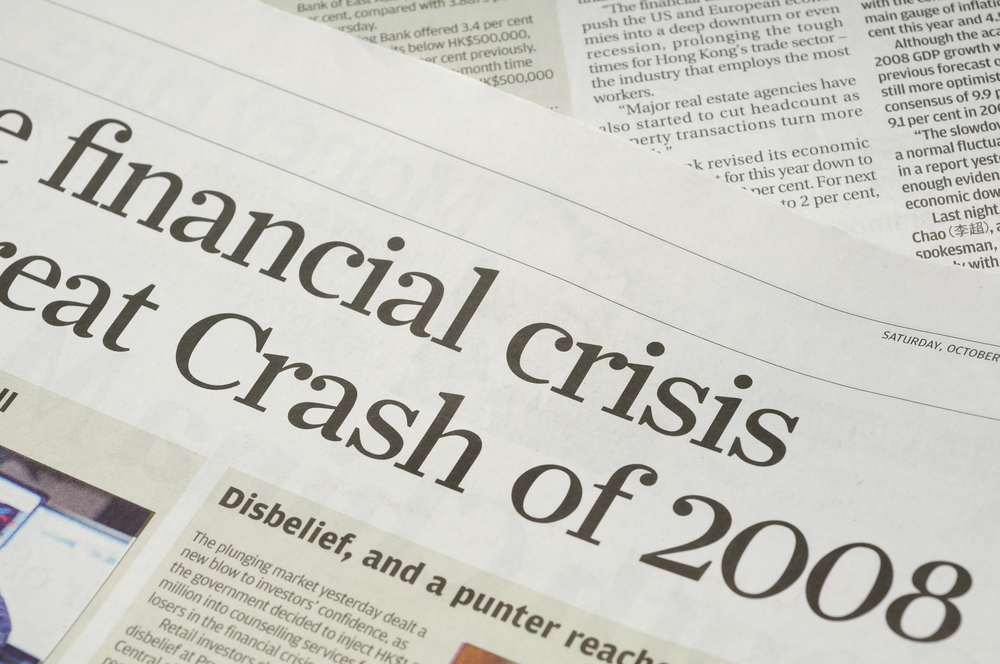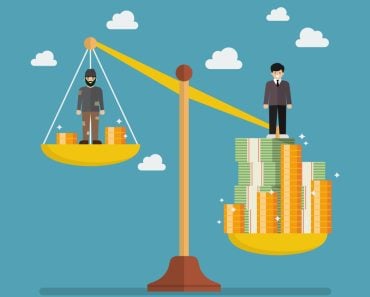Stock markets are susceptible to speculation. Speculation is an inherent feature of financial markets that prevents stock markets from being a sufficient indicator to predict an economy’s health.
The financial economy consists of all those institutions that are potential sources of funds that businesses can tap into to meet their expenditures. Banks, industrial institutions, credit unions, and stock markets are examples of financial institutions. Each institution has its structure, terms and conditions that a borrower must comply with to gain access to their funds.
The financial economy assists in increasing production and consumption activities in the economy. These two activities primarily come under the ambit of the “real economy”.

Financial institutions are a part of the financial economy. Banks are the major financial institutions and may not always be the best allocator of savings that can assure the highest return for an investor with low costs. This is why banks may not always be the best option for a company to raise more capital. This is where the stock market comes in. Stock markets are an alternative institution to allocate funds between savers and investors.
A company looks to the stock market to raise capital with minimum costs (interest) for meeting its expenditure. Unlike loans, they are not liable to pay fixed interest rates to their shareholders. To attract shareholders, the company releases a report that lays out the company’s current financials and the fund allocation plans for the future, which are touted as growth prospects. This exercise builds trust among its investors by laying out the company’s scope of growth and inviting bids.
Recommended Video for you:
What Is The Leading Cause That Affects The Reliability Of The Stock Market As A Sufficient Macroeconomic Indicator?
This susceptibility of stock markets to sudden price movements is the main reason. This susceptibility is known as speculation.
Speculation is an activity that relies on making gains from sudden price movements. A speculator in their undertakings is similar to a gambler. Unlike investors, whose decision to make profits from their investment depends on fundamentals (company’s growth prospects, profitability, asset holdings etc.), a speculator (commonly known as a day trader) is solely making gains from rapid price movements.
Speculators can also disrupt financial markets when they operate in large numbers. The price of a stock is expected to be a reflection of the faith that shareholders have in the company. Speculators can change the direction of the price movement, irrespective of the company’s performance.

While speculation is an inherent part of stock markets, excessive speculation negatively affects the real economy’s dependence on the financial economy. Excessive speculation signals an economy in distress. Rigorous short-term price movements indicate that investors are no longer basing their decisions on the fundamental values of the asset, but are instead trying to make a quick buck from price movements, or the economy is facing a period of uncertainty, and investors are skeptical about its prospects.
Furthermore, excessive speculation can also affect the prime motive of stock markets by reducing the capital available for companies to buy productive assets or contribute towards productive investments, thereby hampering growth.
Speculation can have positive effects on the economy. It plays a crucial role in helping markets with price discovery and adding liquidity to markets. Price movements allow the markets to discover the optimal price of an asset and facilitate market efficiency, as speculators account for new information, thereby changing market sentiments.
Moreover, speculators also add to the overall number of participants in the market, reducing the cost of conducting a transaction, while quick selling facilitates liquidity.
Overall, weighing the pros and cons of speculation, it is often observed that speculation destabilizes the market and is viewed negatively. This view has been shared by prominent economists such as Keynes, Kaldor, Soros and Shiller, to name a few.
In the case of speculators with large positions, they can easily manipulate the markets, which can lead to an erosion of trust and confidence in the reliability of stock markets. Speculators who deal in large volumes can upturn markets and cause havoc, which is why stringent regulations are required to disincentivize large price movements.
How Does Speculation Affect The Real Economy?
The financial economy assists in the growth of the real economy, as it is a source for raising funds to meet the requirements of the real economy.
The real economy, in turn, contributes to the growth of the financial sector. Only if there is demand for production or consumption activities in the economy would any company or individual take a loan or publicly raise money from stock markets.
This shows that the financial and real economy are closely interdependent. On the one hand, the real economy provides the scope for expanding activities, but it is the financial economy that brings that vision to life by enabling the real economy.

Excessive speculation blocks the availability of funds, as it keeps fluctuating the price of a stock for no fundamental reason. This diverts resources from productive investments in the economy. If a company intends to make long-term investments and the price of its stock keeps fluctuating, it will never be able to make a decision on capital allocation, which would hinder their growth and innovation.
If this happens to other companies, it would only worsen the situation. Hence, it is important to have market watchdogs keep an eye on excessive speculation, as it tends to have ripple effects across the economy. Speculation in one industry can cause a credit crunch in another and lead to economic recessions.
Conclusion
William Feather, an American publisher and author, once said, “One of the funny things about the stock market is that every time a person buys, another sell, and both think they are astute.’ This shows that stock markets strongly reflect public expectations and may not necessarily reflect the economy’s production capacity. Expectations can be affected by creating false market perceptions. This tendency affects the reliability of stock markets as a valid indicator to signal the health of any economy.
That said, this does not mean that speculation must be stopped or is bad for an economy. Speculation has its merits, as discussed above. Excessive speculation requires stringent regulations to ensure that markets do not experience distress on a day-to-day basis thanks to the lure of quick gains.












